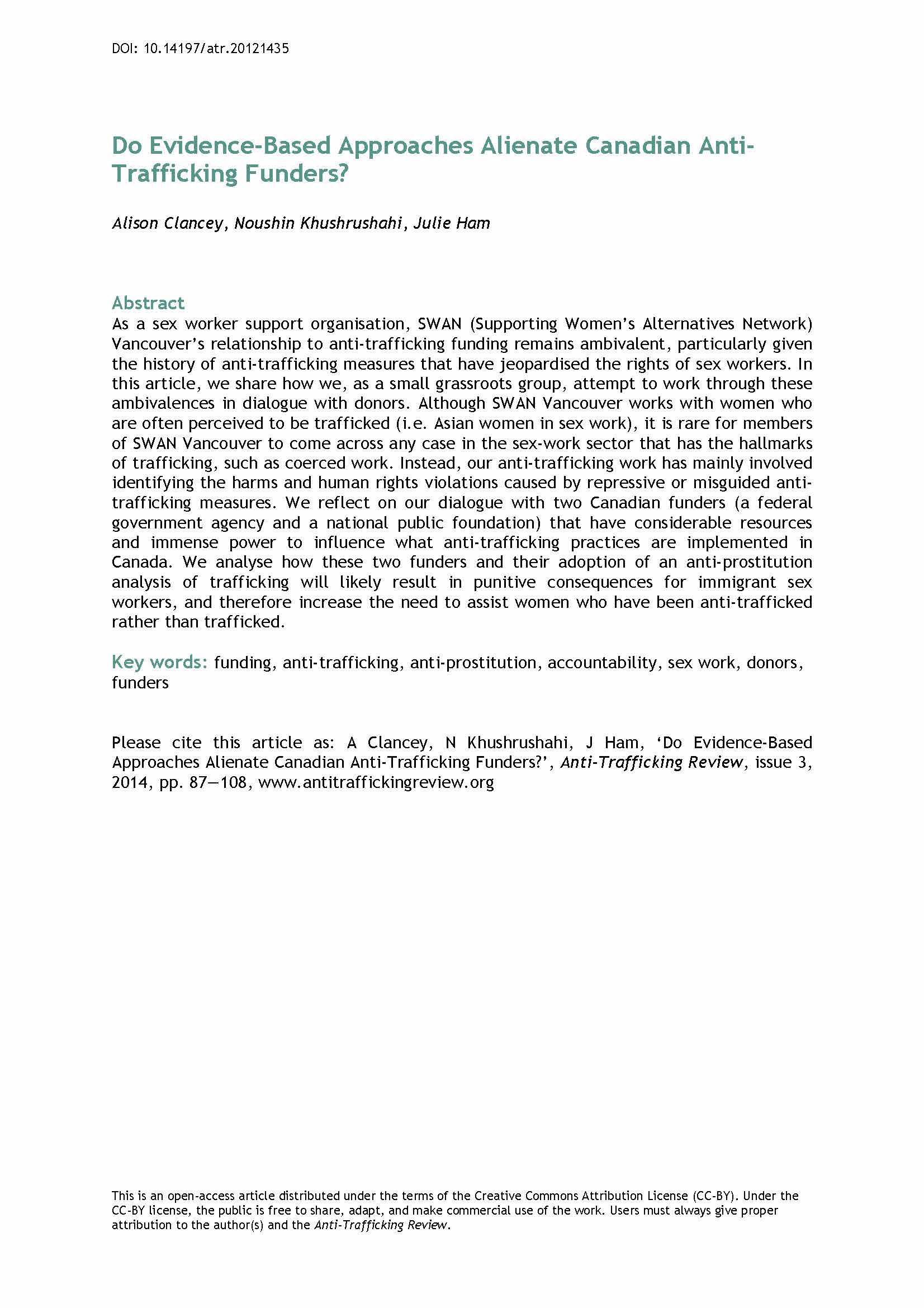In this report, SWAN analyzes how the adoption of an anti-prostitution analysis of trafficking by funders will likely result in punitive consequences for immigrant sex workers.
Written by Alison Clancey, Noushin Khushrushahi, Julie Ham
Abstract:
As a sex worker support organisation, SWAN (Supporting Women’s Alternatives Network) Vancouver’s relationship to anti-trafficking funding remains ambivalent, particularly given the history of anti-trafficking measures that have jeopardised the rights of sex workers. In this article, we share how we, as a small grassroots group, attempt to work through these ambivalences in dialogue with donors.
Although SWAN Vancouver works with women who are often perceived to be trafficked (i.e. Asian women in sex work), it is rare for members of SWAN Vancouver to come across any case in the sex-work sector that has the hallmarks of trafficking, such as coerced work.
Instead, our anti-trafficking work has mainly involved identifying the harms and human rights violations caused by repressive or misguided anti-trafficking measures.
We reflect on our dialogue with two Canadian funders (a federal government agency and a national public foundation) that have considerable resources and immense power to influence what anti-trafficking practices are implemented in Canada.
We analyse how these two funders and their adoption of an anti-prostitution analysis of trafficking will likely result in punitive consequences for immigrant sex workers, and therefore increase the need to assist women who have been anti-trafficked rather than trafficked.
Download the full Do Evidence-Based Approaches Alienate Canadian Anti-Trafficking Funders? report here.

